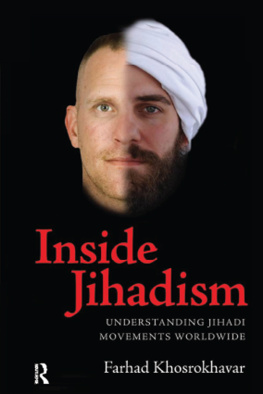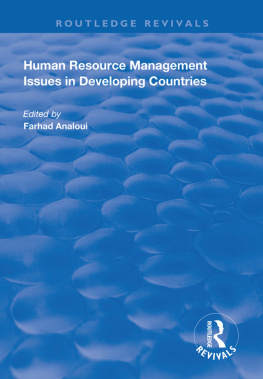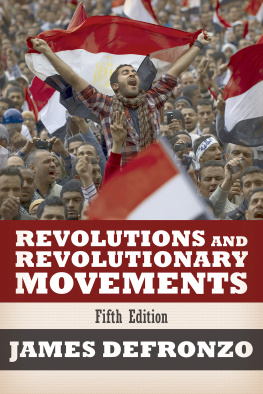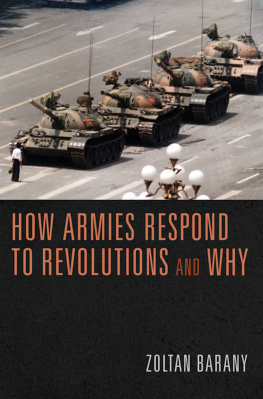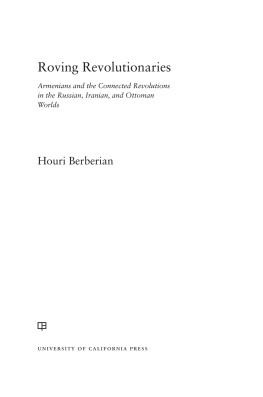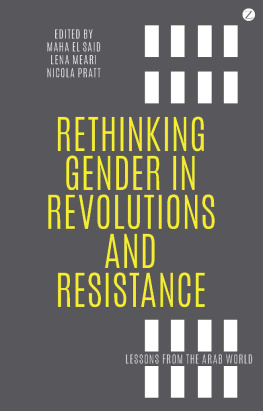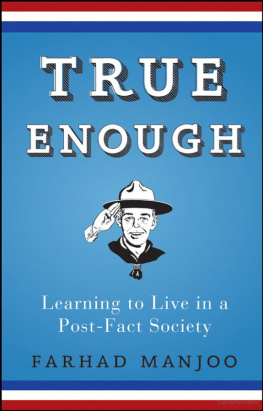THE NEW ARAB
REVOLUTIONS THAT
SHOOK THE WORLD
First published 2012 by Paradigm Publishers
Published 2016 by Routledge
2 Park Square, Milton Park, Abingdon, Oxon OX14 4RN
711 Third Avenue, New York, NY 10017, USA
Routledge is an imprint of the Taylor & Francis Group, an informa business
Copyright 2012, Taylor & Francis.
All rights reserved. No part of this book may be reprinted or reproduced or utilised in any form or by any electronic, mechanical, or other means, now known or hereafter invented, including photocopying and recording, or in any information storage or retrieval system, without permission in writing from the publishers.
Notice:
Product or corporate names may be trademarks or registered trademarks, and are used only for identification and explanation without intent to infringe.
Library of Congress Cataloging-in-Publication Data
Khosrokhavar, Farhad.
The new Arab revolutions that shook the world / Farhad Khosrokhavar.
p. cm.
Includes bibliographical references and index.
ISBN 978-1-61205-083-6 (hardcover: alk. paper)
ISBN: 978-1-61205-376-9 (paperback: alk. paper)
1. DemocratizationArab countriesHistory21st century.
2. Protest movementsArab countriesHistory21st century.
3. Youth protest movementsArab countriesHistory21st century. 4. Political participationArab countriesHistory21st century. 5. YouthPolitical activityArab countriesHistory21st century. I. Title.
JQ1850.A91K475 2012
956.054dc23
2011043095
ISBN 13: 978-1-61205-083-6 (hbk)
ISBN 13: 978-1-61205-084-3 (pbk)
The New Arab
Revolutions
That Shook
the World
FARHAD KHOSROKHAVAR
Dedication
T HIS BOOK IS dedicated to Moulay Hicham Ben Abdallah El Alaoui, who has been at the forefront of the democratic struggle in the Arab world for the last two decades, and to all those Tunisians, Egyptians, Syrians, Yemenites, Iranians, Libyans, Bahrainis, Moroccans, and Algerians who died for the cause of liberty in the democratic movements of the twenty-first century in the Middle East and North Africa.
Contents
M Y THANKS GO to my wife, Noussi, who has helped me directly and indirectly throughout this book; my assistant, Helene Monot, who helped with the bibliography; Paradigm Publishers director Dean Birkenkamp, who encouraged me to write this book; and Candace English, who took care of my rather flimsy English and asked me pertinent questions about the global content of the text.
My thanks go also to my colleagues at cole des hautes tudes en sciences sociales in Paris, in particular my center, Cadis. Specifically I would like to thank Michel Wieviorka, who noticed the repressive nature of the so-called terrorist anti-social movements; Jeffrey Alexander, from Yale University, who opened up to me the notion of the civil sphere in sociological terms; Olivier Roy, from European University; Baber Johansen, from Harvard, who made possible my stay as a research scholar at Harvard University in 2009; Alain Touraine, who introduced me into the study of social movements; and my dearly departed philosophy professor Michel Henry, who made me understand the meaning of subjectivity in phenomenological terms.
A RABIC WORDS THROUGHOUT this book are transcribed with the maximum simplification to make it easier for specialists to find the adequate Arabic words when necessary.
There are some repetitions to make it easier for readers to have self-contained chapters. From my experience, only a few assiduous scholars will read the book in its entirety. Repetitions make it easier to read a chapter or two without having to peruse those parts of lesser interest to the reader.
T HIS BOOK cannot be read as easily as a detective story or a news report. It is marked by sinuosity, convoluted narratives, multiple views, and sometimes even contradictory or unknown vistas that leave the last word to the reader. There is no single satisfactory explanation of complex social movements, and there is no way to predict for sure what will happen. Still, one can be aware of the stakes and the new mobilization capacity of the Arab world through what has happened recently and what has happened in the more distant past. Before the Arab uprisings, this part of the world was considered to be hopelessly bending under the yoke of despotic regimes. The social movements, small or large, were perceived as leading to nowhere (they did not lead to any major political opening during the previous four decades; in that sense, this interpretation was not mistaken). The new Arab awakening through the relentless uprisings in 2011 brought another view, one that would show the Arab world in turmoil and change through protest movements large and small, through limited acts of disobedience or more extensive social movements.
This view also has its limits. The new upheavals have perhaps given undue weight to the preceding protest movements, small or large, as their harbingers, although the past turbulences undoubtedly played a role in the recent uprisings. The two views (nothing was happening in the Arab world/everything was moving) are largely overstated in that they make us believe in the predictability of major social events, provided we are seeing it through the appropriate glasses. This viewpoint is consistently contradicted by major social upheavals and reborn out of the belief that science gives us the capacity, as Descartes said, to become master and owner of nature by predicting events. In social sciences this view is largely flawed, becauseamong other reasonssocieties are made in part of free agents.
This book is in part based on my experience of Muslim societies, mainly Arab and Iranian, where I travelled extensively for the last two decades, in relation to Islamic radicalism. Nevertheless, the core of this research is based on the contributions of journalists, sociologists, anthropologists, political scientists, and less often, Islamic scholars and jurists who were in direct touch with the Arab world during the uprisings in 2011. Their contributions are diverse and sometimes even contradictory. My selection of their works is oriented towards my general view of the upheavals as motivated by the subjectivation of the so-called would-be middle classes (those who are middle class in their culture and education but mostly excluded from it) along the fault line of the younger generation. My stress is on the pursuit of freedom through cultural creativity, the newly invented culture of freedom opposing the old culture of servitude, mobilizing people through a new symbolism expressed in rage, irony, theatrality, and dramatization, but also with sarcasm towards the dictator and his family and elite and derision of power holders.
I give weight to the iconic dimensions of the protest movements as a crucial aspect of the revolt, as well as the social actors, old and new. Revolutions stress the cultural dimensions of emancipation, but the Arab movements have taken the cultural invention of freedom to new heights through events in which new types of activists mingled with old ones.
My meta-discourse is presented in the first chapters, and I reconstruct the contributions of the scholars and journalists along those lines because I sincerely believe that we are witnessing an original type of social movement with new features, unlike the Islamist or Nationalist movements of the past. These movements share many features with the alterglobalization movements (




